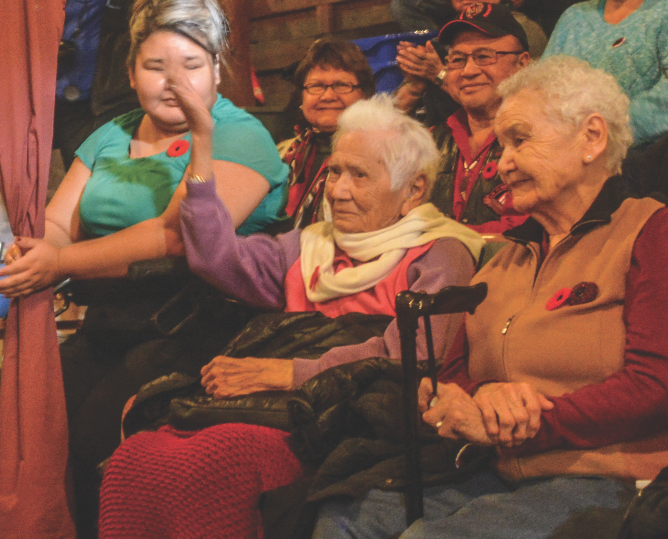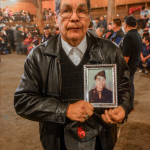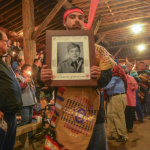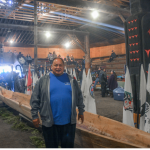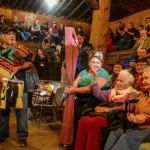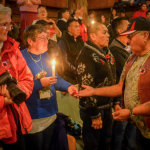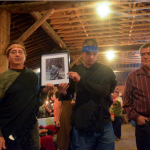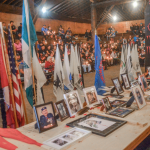Our Vets Remembered
Reconciliation is about all Canadians making efforts to better understand the role Indigenous Veterans have played in Canada and expressing their heartfelt gratitude. It is our hope that Canadians across the country join us in honouring them today.
-Statement by Canada’s Carolyn Bennett, minister of Indigenous and northern affairs, and Kent Hehr, minister of veterans’ affairs.
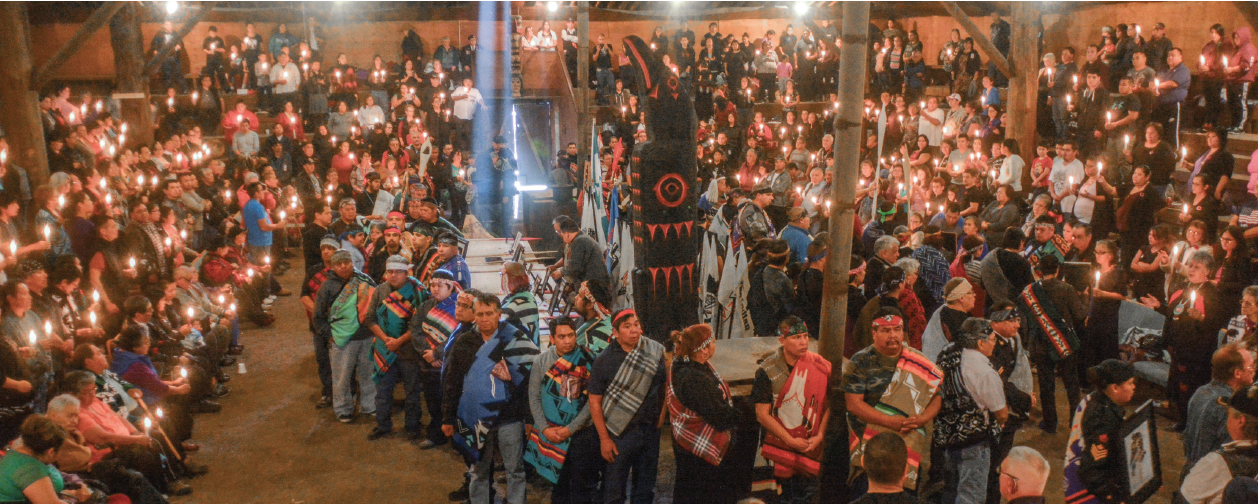
Light shines down on veterans photos atop the carved canoe, surrounded by family members in a moment of silence
Words and photos by Tricia Thomas
People from around the Salish Sea gathered at the Somena Big House in Cowichan territory on Nov. 11 to honour Aboriginal veterans.
It was an emotional day for many, particularly for those whose family members contributed to Canada’s war efforts. That’s because Aboriginal veterans are often called the ‘forgotten soldiers’. Many thousands of Aboriginal men and women traveled and fought with the Canadian military troops in WW1 and WW2, as well as in the Korean War. But even then, the Government of Canada did not consider Aboriginal people citizens.
Two Cowichan carvers, Harold Joe and George Rice, were among the organizers. Joe and his team carved a raven totem to represent the fighting spirit of the veterans. He also carved a war canoe and paddles to honour forgotten warriors. Halalt First Na-tion contributed wood for the paddles.
The day began with a mask dance ceremony to bless the totem and canoe, surrounded by flags representing attending nations. Family members carried veterans’ photos and medals around the floor of the bighouse, along with paddles engraved with names.
The canoe and totem will rest at Vancouver Island University in Duncan until they go to the destination for the next honouring ceremony.
Last May, when Joe and Rice met with Naut’sa mawt Tribal Council to get support for their plans, Joe said: “It is something that has never been done for our people and it is important to hon-our them.”


